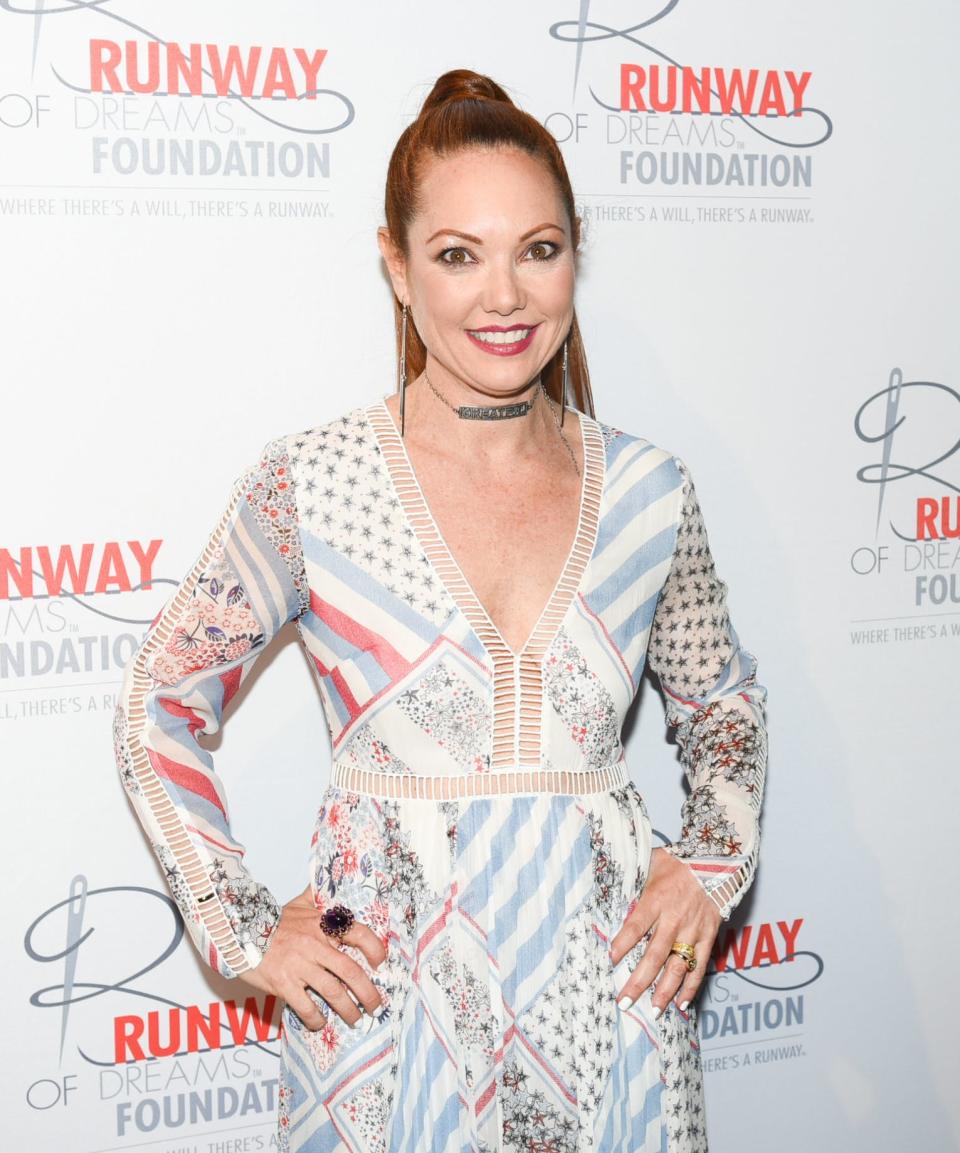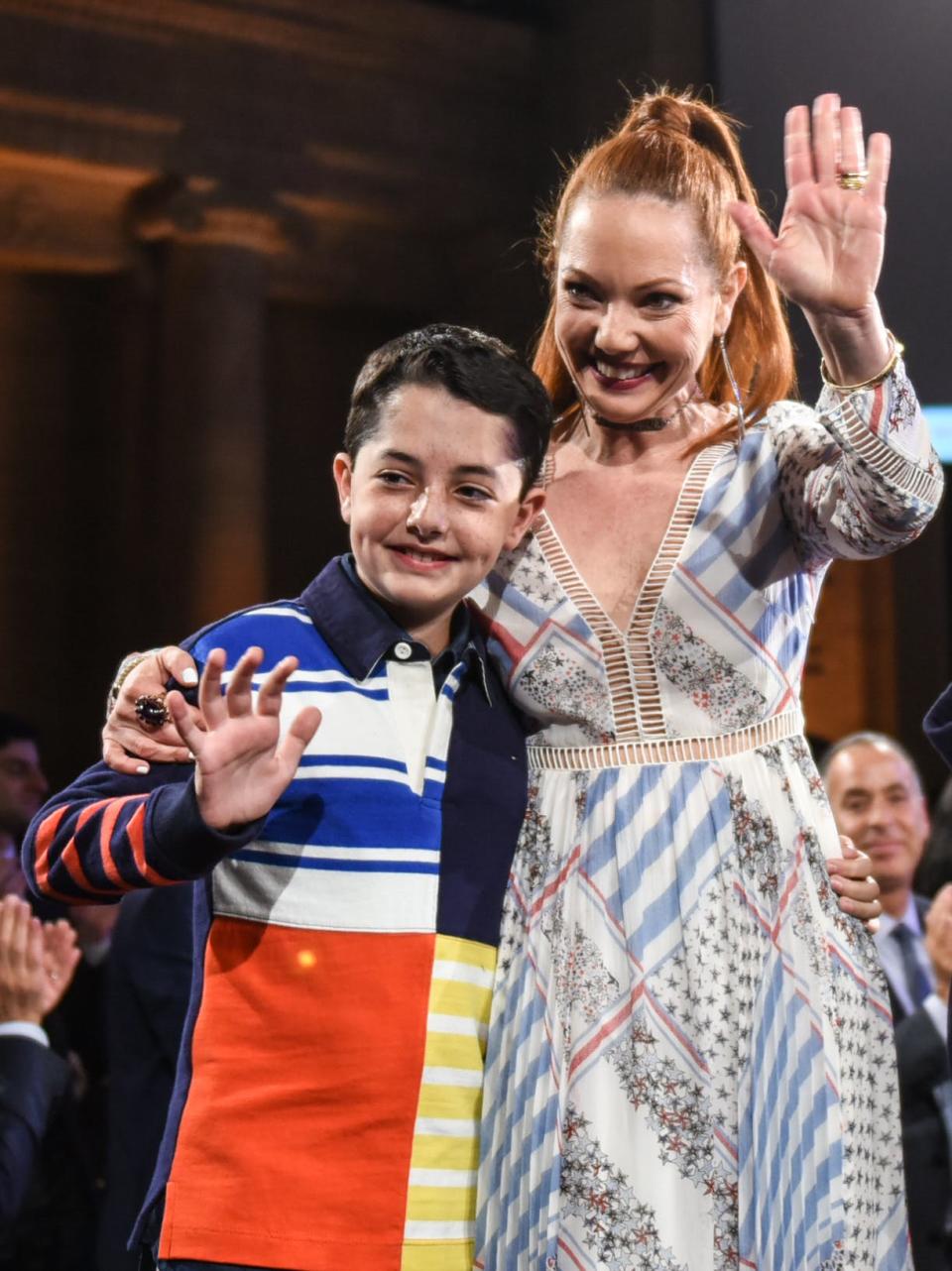This Fashion Designer Was Inspired by Her Disabled Son to Make Clothing More Inclusive
It would be a stretch for Mindy Scheier to remember a time when what she wore wasn’t important to her. “Fashion truly is a clear connection to my confidence level, how I feel about myself — and it always has been,” she tells us. “I choose to look a certain way. I couldn’t even imagine not having those choices.”
Scheier was forced to face the reality many disabled people face through her son Oliver’s perspective when, in 2014, he made a seemingly simple request. The then-eight-year-old came home from school and announced that he wanted to wear jeans the next day. While this may seem like an uncomplicated ask, it was a bit trickier for Oliver, who was born with a rare form of muscular dystrophy. Scheier and her husband had decided several years previously that it would be easier for everyone involved if their son stuck to sweatpants exclusively. In the absence of complicated waist closures and restrictive fabric that would be hard to fit over his leg braces, their hope was that Oliver could be more independent. But that hope didn’t account for the fact that Oliver might harbor a secret love of fashion, just like his mom.

“I was so taken aback that I hadn’t even recognized that he had an opinion and that he really did care about what he wore,” Scheier recalls. “He made it very, very clear that he was wearing jeans to school the next day, no matter what.” Fashion industry veteran Scheier put her years as a fashion student to good work that evening, rigging up an impromptu design studio on her kitchen table. While she jokes now that it was “truly an arts and crafts project,” the mom of three successfully reached her goal. With the aid of a rubber band closure and a few other modifications, Oliver was ready to wear jeans to school the next day. His leg braces fit comfortably under the material, and he didn’t need help to get them on and off. The best part? He felt good! “It was such a visible, clear change in how he felt about himself. It was such an eye-opening experience of how truly powerful clothing can be to your self-esteem. That was really the beginning of Runway of Dreams.”
Four years later, Runway of Dreams is hard at work on its mission of “promoting people with disabilities in the fashion industry and advancing the future of adaptive design and innovation.” Between Oliver’s initial request to wear jeans and actually founding the organization, Scheier embarked on a full year of research, during which she met with a wide range of disabled people, ran focus groups, and met with her contacts in the industry in hopes of figuring out how the fashion world was addressing the needs of this community. The answer was disappointing: Scheier discovered that little — nothing, really — had been done by the mainstream fashion world to welcome or adapt for disabled people.
While some of her industry contacts encouraged Scheier to channel her fashion experience into a line of her own, she was cautious about the implications of doing so. “I couldn’t develop my own collection and go that direction, because then change wasn’t going to happen in the industry,” she says. “Yes, it could have been a great line, but people with disabilities need and should be able to wear the same things as everyone else. It’s a new category in the industry, no different from petites or plus.”

In that spirit, Scheier took her months of research directly to her fashion connections, ultimately landing a meeting with Tommy Hilfiger’s Gary Sheinbaum. Within 10 minutes, Sheinbaum said he wanted to get involved with Scheier’s efforts (since she’d been missing family time for weeks in order to prepare, Scheier did insist on finishing her entire presentation), and in February 2016, Tommy Hilfiger launched their first adaptive clothing line. The initial line was for children, and an adult collection followed in October 2017. Scheier continues to consult for Tommy Hilfiger.
As part of their efforts to bridge the accessibility gap between the fashion industry and disabled people, Runway of Dreams offers scholarships for hopeful adaptive designers and works to raise awareness among designers so that disabled people can be better represented in the fashion world at large. The foundation will host a gala during New York Fashion Week on September 5, 2018, which will showcase adaptive styles and help further the conversation around these issues and opportunities.
Scheier — whose TED Talk was released in January 2018 — credits her passion with the progress Runway of Dreams has made in the last four years. “Passion allows you to not take no for an answer,” she encourages. “It allows you to keep going when the odds are stacked up against you.” And while passion may have been her greatest asset, Scheier’s primary piece of advice for women who want to channel their own energy into a bigger cause is to keep an open mind and seek guidance. When you can pair your passion with someone else’s expertise, seriously amazing things can happen. And asking for help when you need it can also help simplify the problems that seem most scary.
“It’s these big, overwhelming ideas that are usually a block for people moving toward what they want to do,” Scheier reminds. “Just break it down! Everybody has something to add to this world — everybody. It’s just taking that first step and doing it.”
What kind of difference are you passionate about making? Tweet us @BritandCo!
(Photos via Leandro Justen/BFA)

